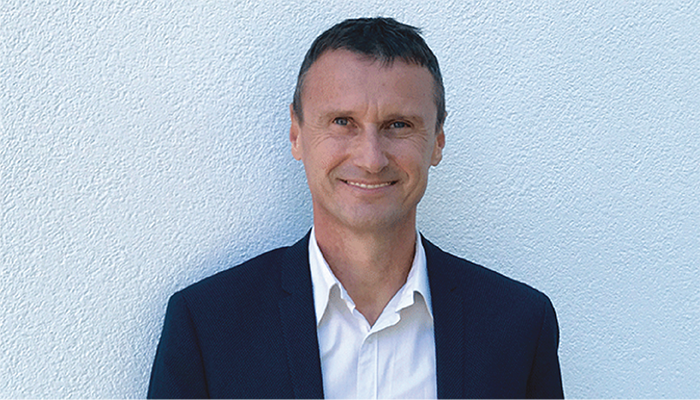Does analytical science have a reputation problem? Are we struggling to attract talent to the field? If so, what can we do about it? We’re exploring these questions with a series of articles (here are episodes one and two). Here, Gert Desmet, Full Professor at the Chemical Engineering Department, Vrije Universiteit Brussel, Belgium, weighs in.
Why do we have a reputation problem?
Analytical chemistry is often considered a tool and “support act” for other fields – we’re solving analytical problems and providing the concept that allows other scientists to make great discoveries. Analytical chemists aren’t usually winning Nobel Prizes, but without analytical science, this award winning research wouldn’t have been possible.
Additionally, the education of high school students and first year university students highly focuses on basic reaction instruments and typical organic chemistry knowledge. The chemistry books they get to see barely touch on analytical principles and the instrumentation used in analytical science. When this is the only view people are getting of analytical chemistry, it’s no wonder we only appear as an outsider in the chemical community.
Are there negative stereotypes of analytical scientists? If so, what can we do to change this view?
One stereotype is that analytical scientists are “nitpickers.” Due to the precise nature of our field, we, of course, need to ensure our measurements are accurate and act carefully when approaching projects. This “nitpicky” approach is key for getting the right results – so maybe we should embrace this view and turn it into a label of quality. Being precise is also an effective and prestigious thing. Rather than labeling ourselves as “nitpicky,” we should use words like “precise,” “accurate,” or “categorical.”
Should we change our approach with students?
Many, and especially the best, students at university are not really concerned about their future career yet. They are more curious and driven by making new discoveries. As a result, maybe we’re indeed losing some of the most talented chemistry students to disciplines where there’s more Nobel prizes expected. One approach we could take is in positioning analytical chemistry as a field for technology geeks. There are some beautiful instruments and decades worth of technological advancements that we should highlight to the next generation.
Additionally, there seems to be a lot of interest in forensic science, especially with TV shows like CSI Miami. To extend interest in analytical chemistry, we could organize collaborations across courses – allowing forensic science students to look at impurities in drugs and find singular molecules that solve the problem. This is CSI in the biological and chemical world. Maybe seeing this hidden side of forensics or other courses that crossover with analytical chemistry would push students to look further into our field.
We should also capitalize on our role in helping solve global threats. From creating vaccines to the precise nature of infectious disease, analytical chemistry was key to our success in combating COVID-19. It’s important that the public see the role we played in the background. I know some journals tried to promote the field, but these don’t reach the general public. This news needs to be mainstream, appearing in general textbooks and reaching students at an early age.
Have there been past attempts to improve the reputation of the field? If so, how have they fared?
Many groups have tried to evade the problem by changing the name of their group. For more than 30 years, there has been a trend in analytical chemistry departments to transform into applications focused departments.Although this worked well to attract funding and students, the field suffers major negative effects when analytical chemistry isn't advertised as a focal point. The same happened at the level of staff recruitment – retiring analytical chemistry professors are usually replaced by someone with an application science background with little analytical chemistry training. As time goes on, analytical science can be seen less and less in relevant degrees, and it’s difficult to come back from these worldwide declines.
What else can we do to improve the reputation of analytical science?
Analytical chemistry should be more visible in textbooks and discussed as a vital point in scientific discovery in classrooms – both at high school level and university level. When I was in high school, I saw many students falling in love with chemistry and going down the organic chemistry route because that’s the only path they believed was open to them. If we could also show students the beauty of mass spectrometry and spectroscopy at an early stage, they might see things differently.
It is important for society to understand the importance of our field and all the possibilities for future discoveries. If the Nobel Prize Committee, for example, took notice of analytical scientists in research projects, the next generation are more likely to see our field as a viable career path.
There’s also so many options for careers within analytical science – from pharmaceuticals to clinical research. Showcasing the importance and broad spectrum of analytical chemistry can only benefit our cause.
We should be much louder about our accomplishments. Not only to the general public, but also to our fellow chemists and scientists. We should make it clear that everyone would benefit from improvements in analytical science. There’s no reason to sell ourselves short. The world needs analytical chemistry – this was demonstrated through the COVID-19 pandemic. Thankfully, we were ready for it. But what will happen, if we aren’t?

Credit: Supplied by Interviewee




